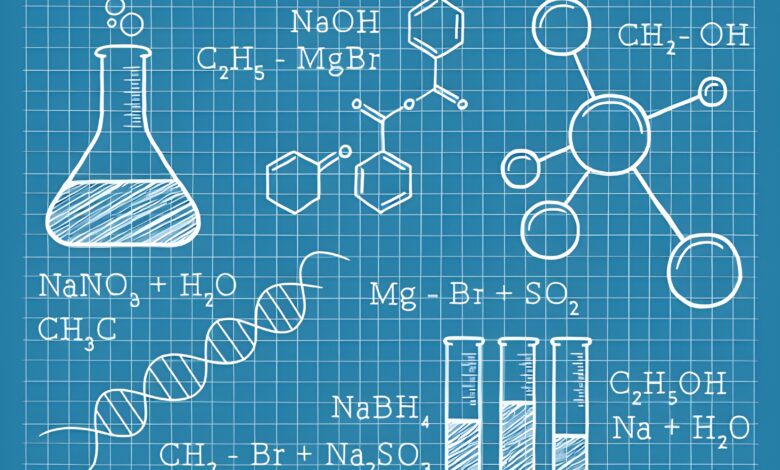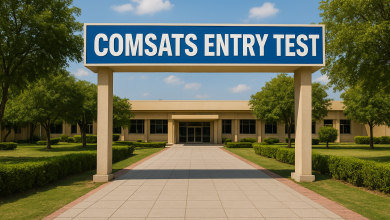Mastering O-Level Chemistry: Your Guide to Achieving an A

Master O-Level Chemistry in Pakistan: From daunting to an A grade – Learn how with a solid game plan.
Introduction
O-level chemistry can be a daunting subject for many students, but it doesn’t have to be. With the right strategies, dedication, and a solid game plan, you can not only pass your O-Level Chemistry exam but also secure that coveted A grade. In this blog post, we will provide you with a step-by-step guide on how to get an A in O-Level Chemistry. From understanding key concepts to mastering practicals, we’ve got you covered. Let’s dive into the world of chemistry and unlock the path to success.
Build a Strong Foundation
The first step in acing O-Level Chemistry is to establish a robust foundation. Ensure you thoroughly understand the fundamental concepts of chemistry, including atomic structure, chemical bonding, and the periodic table. Invest time in your textbook, take detailed notes, and don’t hesitate to seek clarification from your teacher or tutor if you encounter any confusion.
Here are some books I would recommend to students who want to achieve an A* grade in O-level Chemistry:
- Chemistry Matters 2nd Edition Marshall Cavendish
- Cambridge O Level Chemistry 4th Edition Hodder
- Cambridge IGCSE Chemistry Coursebook 5th Edition
- Chemistry A Course for O Level 3rd Edition Marshall Cavendish
These books not only have the comprehensive concepts required to ace the exam but are also well-structured and easy to read. A word of caution is to choose one book that you like and use it to study the syllabus. Switching between books can make you lose focus and confuse you unnecessarily.
Furthermore, you can invest in low-price editions or online versions of these books. Your school library might also allow you to borrow these books for reference.
Know Your Syllabus
Familiarity with the O-Level Chemistry syllabus is crucial. Review the curriculum provided by your examination board, whether it’s CIE or IGCSE, and create a study plan that covers all the required topics. This ensures that you won’t miss any key concepts or sections during your preparation.

Stay Organized
Organization is the key to effective learning. Maintain a well-organized study environment, keep track of deadlines, and use tools like calendars or digital apps to schedule your study sessions. This will help you manage your time efficiently and reduce the stress of last-minute cramming.
Quality Study Materials
Invest in quality study materials. A good textbook, practice papers, revision guides, and online resources can be immensely helpful. These resources often provide valuable practice questions and explanations that can reinforce your understanding of the subject. Similarly, having excellent tutors can be the missing puzzle piece to achieving an A*. Chemistry is one of those subjects that can seem much less daunting if you have a good tutor.
Here’s what you should do:
After you’ve studied your book, the next step is to read through your notes. Having detailed notes is the key to performing well in the exam, and that is why I recommend notes only by expert tutors. A good tutor can help you focus on key concepts and their application, making it easy for you to understand and summarize the syllabus.
Once you study your notes, you must solve topical and yearly past papers to practice applying the knowledge you’ve gained. Students often make the mistake of not practicing past papers and solely focusing on books and notes, which can lead to a drastic impact on grades.
Of course, a good tutor can guide you through each of these steps.
Practice Regularly
Practice is the cornerstone of mastering O-level chemistry. Solve as many practice questions and past papers as possible. This not only helps you understand the exam format but also sharpens your problem-solving skills. Start with easy questions and gradually move to more challenging ones as your confidence grows. The Cambridge website has recent past papers but a simple Google search will lead you to websites with two decades of past resources.
Multiple-choice questions can often be trickier in chemistry. That is why I would recommend practicing multiple-choice once you’ve solved some structured questions and have a good understanding of the syllabus content.
Seek Guidance
Don’t hesitate to seek help when needed. Your teacher, tutor, or even study groups can provide valuable insights and explanations. Collaborative learning can make complex topics more manageable and help you grasp concepts from different angles.

Master Practical Skills
O-level chemistry often includes practical experiments and assessments. Practice practicals under proper guidance and make sure you understand the underlying chemistry behind each experiment. This not only helps you in your practical exams but also strengthens your theoretical understanding.
Revision and Mock Exams
In the weeks leading up to your O-Level Chemistry exam, focus on revision. Summarize your notes, create flashcards, and take part in mock exams to simulate the actual test conditions. Mock exams are particularly beneficial as they help you manage your time and build exam confidence.
Time Management
Managing your time during the exam is critical. Read the questions carefully, allocate time wisely, and tackle the easier questions first to ensure you gain maximum marks.
Stay Positive
Maintain a positive mindset. Believe in your abilities and stay motivated. Remember that hard work and dedication are the keys to success.
Conclusion
Achieving an A in O-level chemistry is an achievable goal with the right approach. Building a strong foundation, thorough preparation, regular practice, and staying organized are the fundamental elements of success. With the strategies outlined in this guide, you can confidently approach your O-Level Chemistry exam and secure the A grade you’ve been aiming for. Chemistry can be challenging, but it’s also incredibly rewarding, and with dedication and the right techniques, you can master it and excel in your O-Level examinations.




Hi! I’ve been reading your weblog for a long time now and finally got the courage to go ahead and give you a shout out from Houston Tx! Just wanted to say keep up the great work!